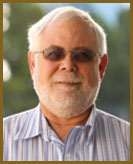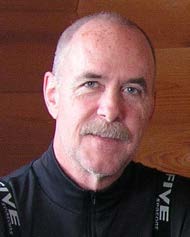|
From the Editor - April 2015 |
April 1, 2015 |
|
|
 Will You Be a Survivor? Will You Be a Survivor?
A few days ago I was discussing my Editor’s Column with a colleague. Considering the recent events in our business (falling oil prices, budget cuts, layoffs) he suggested I use a future column to reassure the younger members that everything will be okay for them. This seemed like a pretty good idea until I gave it some more thought. In good conscience, I can’t tell or try to convince anyone in our business that all will be fine in the future. I can, however, fairly confidently state that the industry will be okay and will probably have a good future. Whether or not any particular member will be a part of that future is much less certain.
|
|
|
From the Editor - May 2015 |
May 1, 2015 |
|
|
 What is Your Job? What is Your Job?
At some point in our careers, we have probably heard someone say “That’s not my job” — perhaps we’ve even said it ourselves. Personally I find it to be one of the most frustrating responses you hear commonly in the workplace. I have been thinking about this a lot lately and would like to offer a few thoughts.
|
|
|
From the Editor - June 2015 |
June 1, 2015 |
|
|
 Goodbye and Thank You! Goodbye and Thank You!
The time for the column that I was looking forward to writing in July of last year has finally arrived. For some reason, I am not as excited to be writing it as I thought I would be. I have enjoyed my term as Editor and, with the exception of writing the monthly Editor’s Column, am sad to see it end.
|
|
|
From the Editor - September 2015 |
September 1, 2015 |
|
|
 The Greatest Oil Well In History The Greatest Oil Well In History
It was a big early 20th century gusher… but it wasn’t the famous Spindletop well drilled in 1901 near Beaumont, Texas, or even any of the many super-prolific oil wells of the Middle East.
|
|
|
From the Editor - October 2015 |
October 1, 2015 |
|
|
 Mourning the Cactolith Mourning the Cactolith
Linguists estimate that there are roughly 3,000 words in the English language that are in common, everyday use. In contrast, my copy of the 1974 edition of the American Geological Institute’s (AGI) Glossary of Geology has about 33,000 entries, and that number has risen to nearly 40,000 in the latest (2011) edition. Is that too many?
|
|
|
From the Editor - November 2015 |
November 1, 2015 |
|
|
 Erwin Raisz and His Wonderful Landform Maps Erwin Raisz and His Wonderful Landform Maps
Most of us geologists have a love of maps — or at least we should, as we have to make and use them all the time. As an elementary school student in the northeast U.S., one of my favorite ways to spend a cold winter’s eve was to lie on the floor of the living room with the family World Atlas, sheets of tracing paper, pencil and eraser, and proceed to sketch rivers, lakes, mountain ranges, etc. from faraway, exotic realms of the globe. I would imagine how these places really looked, and dreamt of traveling there. I guess that’s the origin of my own affection for maps, and perhaps for geology.
|
|
|
From the Editor - December 2015 |
December 1, 2015 |
|
|
 The Power of Seeps The Power of Seeps
With so much emphasis placed on the development of new technology for finding oil & gas, and rightly so, we sometimes forget that there are some old tools and techniques that still retain their usefulness. The most ancient of all methods for petroleum exploration was first applied by early man, who discovered that a sticky black substance (biodegraded oil, or pitch) found in certain places at the Earth’s surface, was an effective sealant/caulking material.
|
|
|
From the Editor - January 2016 |
January 1, 2016 |
|
|
 AAPG's Publication Pipeline: Geoscientists Helping Geoscientists AAPG's Publication Pipeline: Geoscientists Helping Geoscientists
In the Your Board in Action column this month, Editor-elect Tami Shannon has eloquently outlined some of the key benefits of stepping-up our participation in HGS activities, especially in these uncertain times when maintaining and building our professional networks, and technical knowledge, is so important. Allow me to augment Tami’s good message by also encouraging your involvement in volunteering opportunities beyond HGS. I’ll highlight one example (among many) of how we Houstonian geoscientists can have a positive impact on our colleagues around the world—befitting Houston’s privileged status as the capital of the global petroleum industry.
|
|
|
From the Editor - February 2016 |
February 1, 2016 |
|
|
 The Resistance to Extreme Geology The Resistance to Extreme Geology
One of the main concepts to which all Geology 101 students are introduced is uniformitarianism, which is simply stated as “the present is the key to the past.” As we geologists all know, the fundamental concept was introduced by James Hutton in the late 18th century, and institutionalized by geologist and lawyer Charles Lyell via his landmark The Principles of Geology first published during the 1830’s.
|
|
|
From the Editor - March 2016 |
March 1, 2016 |
|
|
 Geosynclinal Theory Redux Geosynclinal Theory Redux
The geosynclinal theory, predecessor to plate tectonics, was first developed by American geologists James Hall (1859) and James Dwight Dana (1866) during the course of their research on the Appalachian Mountains of the eastern US.
|
|


